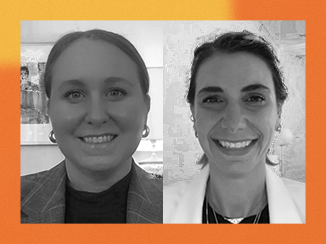5 New Ways to Think About Time | Tory Burch Foundation
Develop leadership skills
5 New Ways to Think About Time
Improve using these 5 tips.
Link copied to clipboard
Although a substantial amount of research has examined the link between money and happiness, far less has examined the link between time and happiness. In spite of the belief that money is the resource most central to American’s pursuit of happiness, increased happiness requires attention to time.
Drawing from their research and that of others, professors Jennifer Aaker, Melanie Rudd, and Cassie Mogilner extracted five time-spending principles:
1. Spend time with the right people.
The greatest happiness levels are associated with spending time with people we like. Socially connecting activities—such as spending time with good friends and family—are responsible for the happiest parts of the day. However, work is also an essential element in the time-happiness relationship. Although spending time with bosses and coworkers tends to be associated with some of the lowest degrees of happiness, two predictors of people’s general happiness are whether they have a “best friend” at work and whether they like their boss. And studies show that as the quality of workplace friendships increase, so does workplace happiness and productivity (Rath & Harter, 2010). Greater attention, therefore, needs to be paid to how such workplace relationships form and grow. Consider the question: is there a way to reframe relationships and workplace goals such that colleagues become friends and time spent at work becomes more rewarding?
2. Spend time on the right activities.
Certain activities are energizing, and others make us feel drained and defeated. To increase happiness, people often argue that you should avoid spending time on the latter activities in favor of the former whenever possible. Yet, that strategy is often impossible – indeed, bills have to be paid, the bathroom cleaned, and it’s sometimes a challenge to get through the day. What may be more useful is to reflect on how you are spending your time. For example, sequencing your schedule so that the draining activities are first in the day or partnered with energizing activities may in fact be more useful. Further, research shows that helping others makes people happy. Unfortunately, people tend to “under-help”—probably because the idea of helping others as a way to achieve happiness is not salient, whereas the pressing, logistical concerns of one’s daily schedule are hard to not think about. Considering how you could spend your time helping others is associated with more lasting happiness.
3. Enjoy experiences without spending time actually doing them.
Research in the field of neuroscience has shown that the part of the brain responsible for feeling pleasure—the mesolimbic dopamine system—can be activated when merely thinking about something pleasurable, such as driving a favorite type of sports car or drinking a favorite brand of beer. In fact, research shows that people sometimes enjoy anticipating an activity more than actually doing it (Loewenstein, 1987). For example, reading guidebooks in advance of a big vacation and anticipating the food you’ll eat and the activities you’ll do while there could actually give you more pleasure than the vacation itself. In short, research suggests that we can be just as well—if not sometimes better off— if we imagine experiences without having them. So to increase happiness, spend plenty of time happily daydreaming.
4. Expand your time.
Unlike money, time is inherently scarce. No one gets more than 24 hours per day. In fact, there is a bidirectional relationship between time’s scarcity and its value. Not only does having little time make it feel more valuable — but when time is more valuable, it is perceived as more scarce. Feeling like you are in a “time famine” — the sense that you have way too much to do and way too little time to do it — has been shown to disrupt sleep, to sap self-discipline and undermines healthy behaviors. However, research shows that something as simple as feeling awe can make you feel more “time affluent”, or rich in time (Rudd, Vohs and Aaker 2012). Further, those who feel they have more available time are less impatient, more willing to volunteer their time to help others; and behave in less materialistic ways. In fact, overall, awe-inspired volunteers were more satisfied with their lives. Take a moment to discover what brings you awe in the day to day.
5. Be aware that happiness changes over time.
As we age, we experience different levels of happiness and how we experience happiness changes. For example, research shows that younger people are more likely to experience happiness as excitement, whereas older individuals are more likely to experience happiness as feeling peaceful (Mogilner, Kamvar and Aaker 2010). Therefore, be aware that basing future decisions on your current perceptions of happiness may not lead to happiness in the long run. Finally, although the meaning of happiness may change, it does so in predictable patterns. So, when designing your career (and perhaps even your life), incorporate flexibility into your expectations, daily plans, and life plan, and ask yourself to what degree you will be able to accommodate the shifts in what happiness means to you.
Dost thou love life? Then do not squander time, for that’s the stuff life is made of.
Benjamin Franklin
In closing, guiding many of our choices is often the question, “What would make me happy?” Yet research has shown that people’s intuitions about what will bring them a feeling of happiness in the moment are often misaligned with what brings lasting happiness, mainly well-being.




